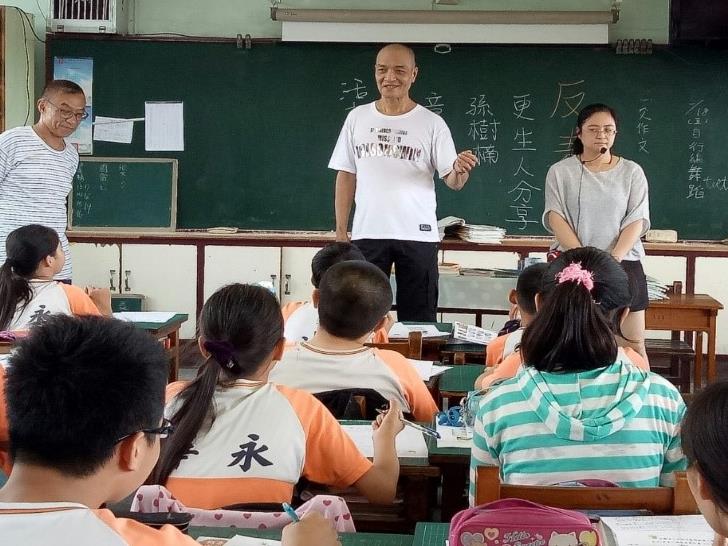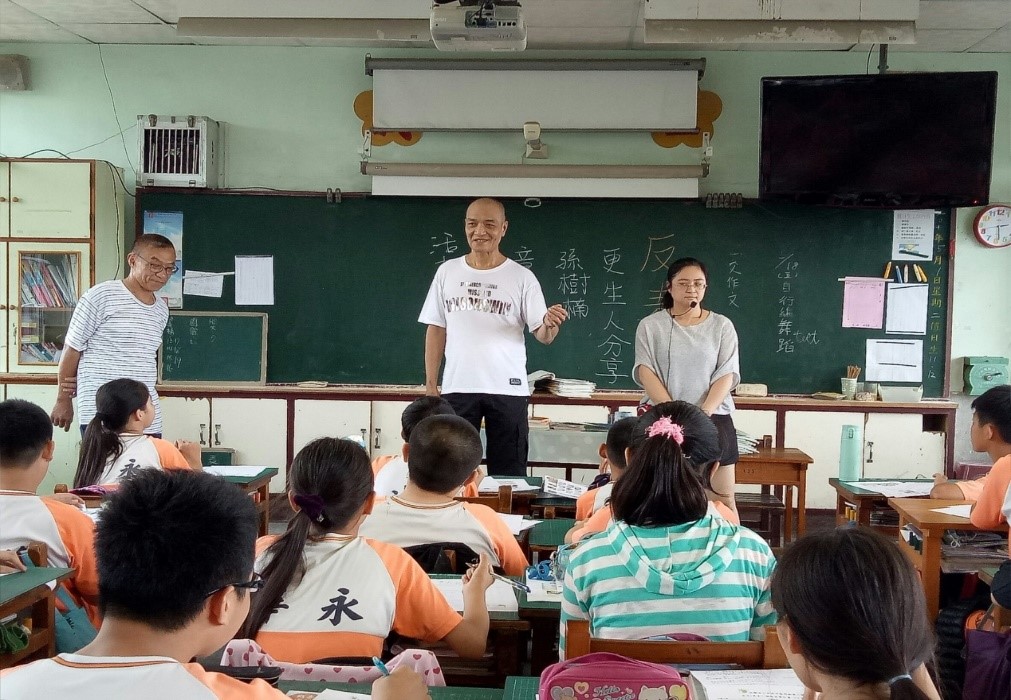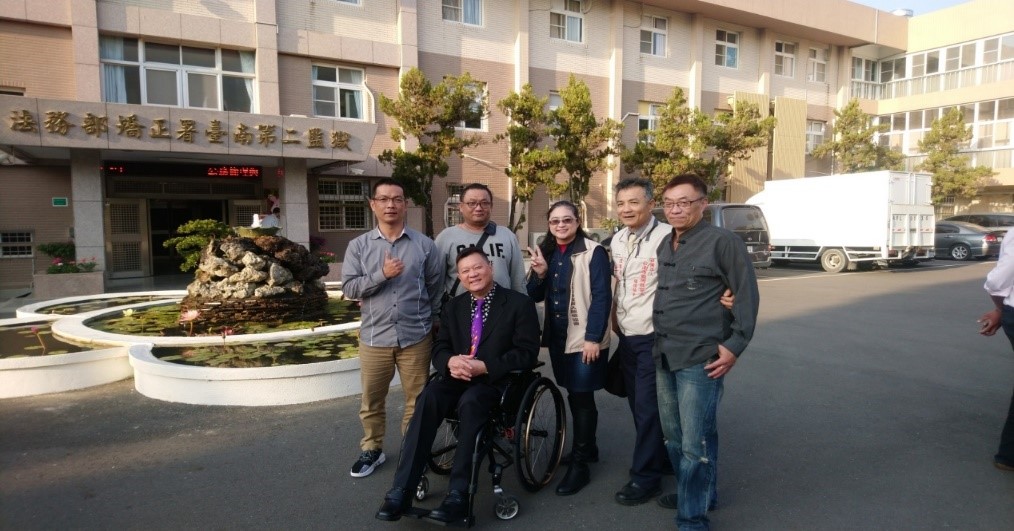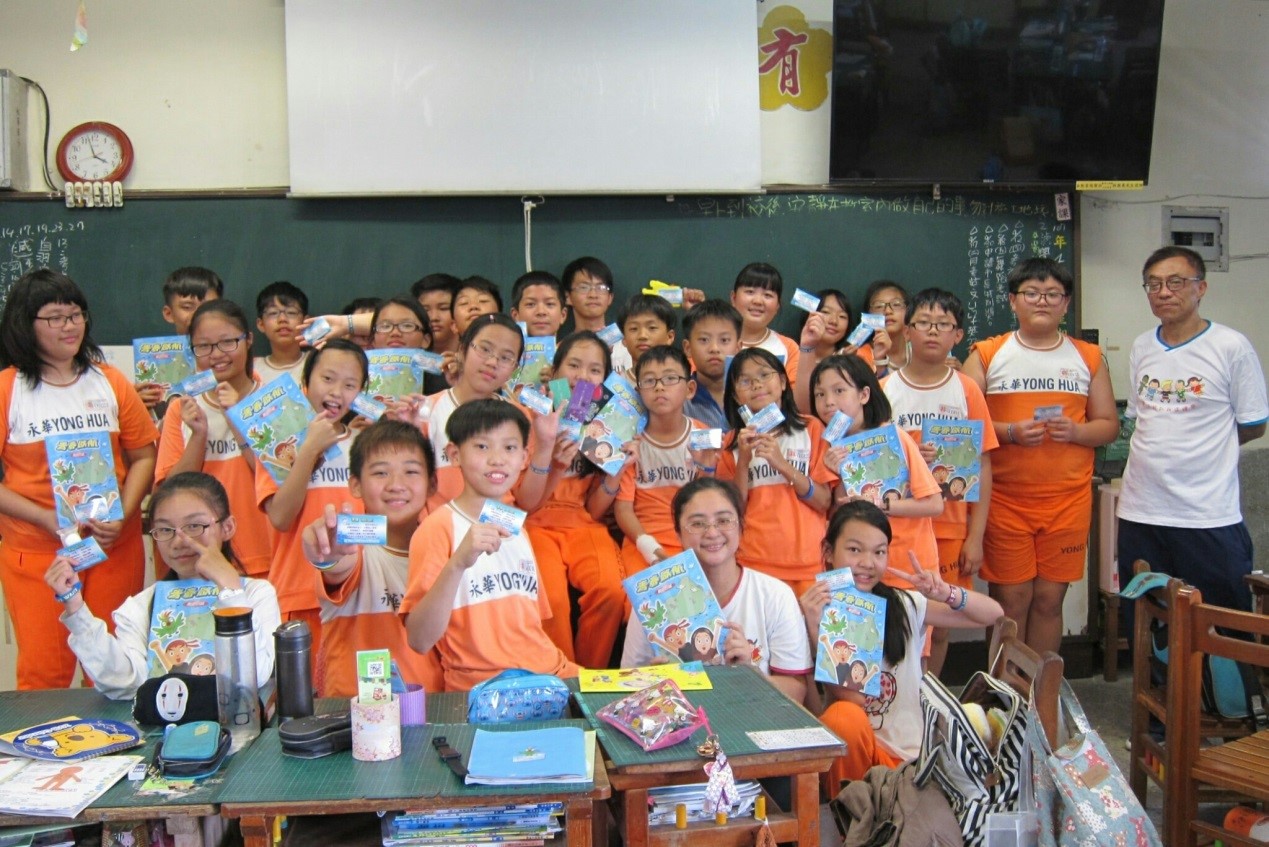MEPP
MEPP

Drug Prevention Lectures from Former Drug Addicts
Tainan Prison Inmate Outreach Association was founded in 2002. The majority of its members are Christians brought together by the power of faith. The association's main task is to provide spiritual counseling for prison inmates. Hsieh Chieh-an is one of these counselors. The association's honorary chairman Li Tian-wang prompted it to do even more. He wanted to establish a workshop for former inmates, but the association's directors and supervisors were not on board. In the end, Hsieh Chieh-an proposed that former addicts use their personal experience to promote drug prevention.
The idea seemed audacious, but Hsieh Chieh-an was actually very meticulous about implementing it. She said, "Former addicts often have a hard time finding work after getting out of prison. Most of the time, they are rejected by employers because the recidivism rate for drug offenses is over 80%. Employers need to keep an extra eye out for them, and most find the task too troublesome." Hsieh Chieh-an desired to give former addicts a chance at redemption, and that is how she boarded this matter.
Hsieh Chieh-an decided to apply for a Social Type Plan of the Multiple Employment Promoting Program (MEPP) of the Workforce Development Agency, Ministry of Labor. WDA granted support with consideration of social welfare and employment promotion. The project began in 2018, with Hsieh Chieh-an as the project manager. Through the project, she hired a former addict to promote drug and crime prevention and began the two-way educational plan that she had envisioned.
She started out by training the former addict to give drug prevention lectures in schools and communities by drawing on personal experiences of drug abuse and trafficking. She said, "At first, many schools were uncomfortable about letting a former addict speak on campus, believing that this would set a bad example for children. However, once they had heard our presentation, they wanted to invite us back." This year, she hired two other former addicts through the project, and the recruit from last year helped out in any spare time. Sometimes, Hsieh Chieh-an takes all three of them to schools to speak about different topics.
She chooses direct and sensational topics such as "What it's like to be in prison from middle school to your forties" and "A life worse than death". The former addicts talk about how they went to jail for drug abuse, and the terrible life they had in prison. The lectures also encourage children to raise questions for former addicts to answer. This dispels the heroic image of gangsters in movies. The former addicts use their life stories to educate children. This is easier for kids to accept compared to dogmatic teachings.
Other than implementing the project, said Hsieh Chieh-an, she also hopes that the process can prompt former addicts to reexamine their lives. She wants them to not only successfully quit drugs and reintegrate into society, but also to explore their family and school life. By analyzing their life story, they may be able to figure out exactly where it all went wrong. With this method of exploration, healing, and reflection, these former addicts are less likely to start using drugs again when life gets hard, or after MEPP ends.
Hsieh Chieh-an said that former addicts first come to the association and discover that the work is a far cry from the easy desk job they expected. It can sometimes lead to emotional outbursts, difficulty adjusting, and constant conflicts. Unlike typical work environments where work comes first, Hsieh said, they have to first deal with emotions and calm down before focusing on the tasks at hand, which requires more tolerance. Many former addicts are actually good speakers. The association only needs to help them prepare mentally to share their life stories with the public.
Deciding the Appropriate Topic for Different Audiences
Currently, Hsieh Chieh-an brings former addicts to give lectures in schools. She arranges different topics and content according to different characteristics of urban and rural schools. In addition, for three days each week, she arranges morning readings in three schools to give the kids life education. After some time of close interaction, the kids often soften the heart of these former addicts, who often reexamine and reflect on their past selves by observing the children's interactions with their teachers.
In addition, Hsieh Chieh-an also arranges lectures at psychiatric homes, communities, and prisons. Since the majority of the audience are senior citizens, the topic focuses on introducing new drugs and educational principles for children, hoping to increase grandparents’ awareness of how their grandchildren are living. The work they do in prison factories is mainly group counseling. It is far more effective for a former drug addict to talk about what is going on in society from personal experience than admonition from the prison staff.
Hsieh Chieh-an said that she is very thankful for WDA's support. Through MEPP, they have been able to hire former addicts, educate them, and help them reexamine themselves and regain their purpose in life. Thus, they can give back to others and reach a virtuous cycle. That is what two-way learning is all about. She said that it is hard for former addicts to find employment outside. WDA's plan supports them through this transitional period so that former addicts can have a stable income while they work hard to reintegrate into society. This entire process emanates positive energy.
On a Mission to Change More Lives
Hsieh Chieh-an held an enviable position in the tech industry for 15 years, where she had a great income. As her kids gradually grew up, she found that though she had made enough money, she hadn't had enough time to spend with her kids. Thus, she began to reflect on the meaning of work and life.
Over these years, she got divorced and became a single mom. She faced many obstacles in life and shed many tears. However, her plights only made her even more determined to have former addicts promote drug prevention in schools and communities. She thought that it would be the right direction despite all its difficulties. "This year we were nominated by WDA and won the title of 2019 Drug Prevention Contributor. We even accepted the award from the President." Hsieh Chieh-an said that changing the life of even one person through the resources provided by the WDA and her faith means success. She hopes to convince more people to stay away from drugs and crime.
In the future, she hopes to work on community building projects with former inmates. They will reach out to solitary elders who are more disadvantaged, and spend time with them as their children or grandchildren. She believes that former addicts who have changed their life around the need to do more charity work. This way, they can show that they can go the extra mile, gain the approval of society, and build up confidence. This is an extraordinary mission for her, stressed Hsieh Chieh-an. She needs people to care and offer more assistance and support.


▲Tainan Prison Inmate Outreach Association made good use of resources from the Multiple Employment Promoting Program, hiring former addicts to give drug prevention lectures in schools.


▲Hsieh Chieh-an brought former addicts back to prison to conduct group counseling. Former addicts shared their experience of reintegrating into society.

▲The Tainan Prison Inmate Outreach Association arranged for former addicts to go to schools and hold drug prevention lectures. These were popular among students.
Case Story - Multiple Employment Promoting Program
Interviewee:
Tainan Prison Inmate Outreach Association - Hsieh Chieh-an

This work is licensed under a Creative Commons Attribution-NoDerivatives 4.0 International License.
Please attribute this article to “Workforce Development Agency, Ministry Of Labor”.
